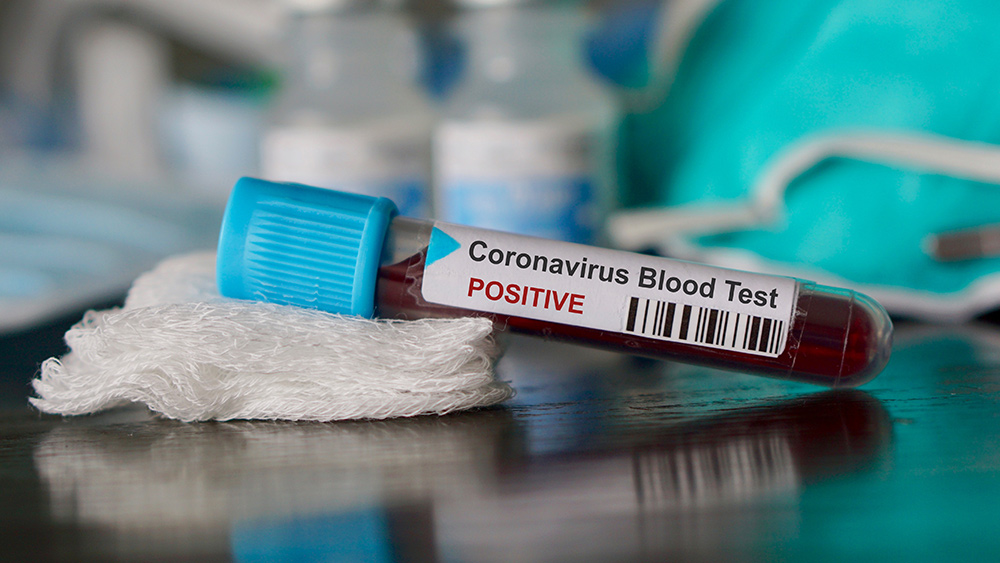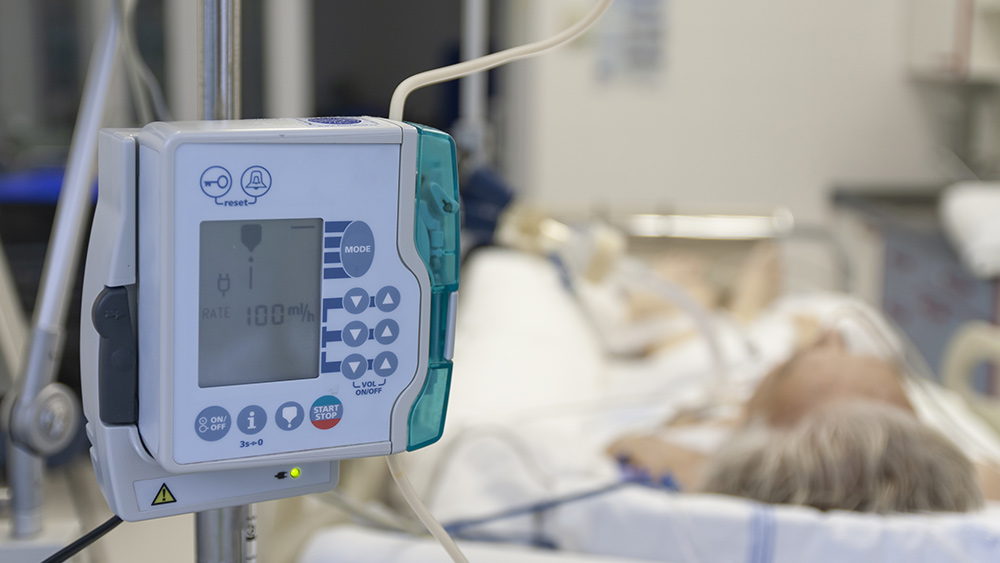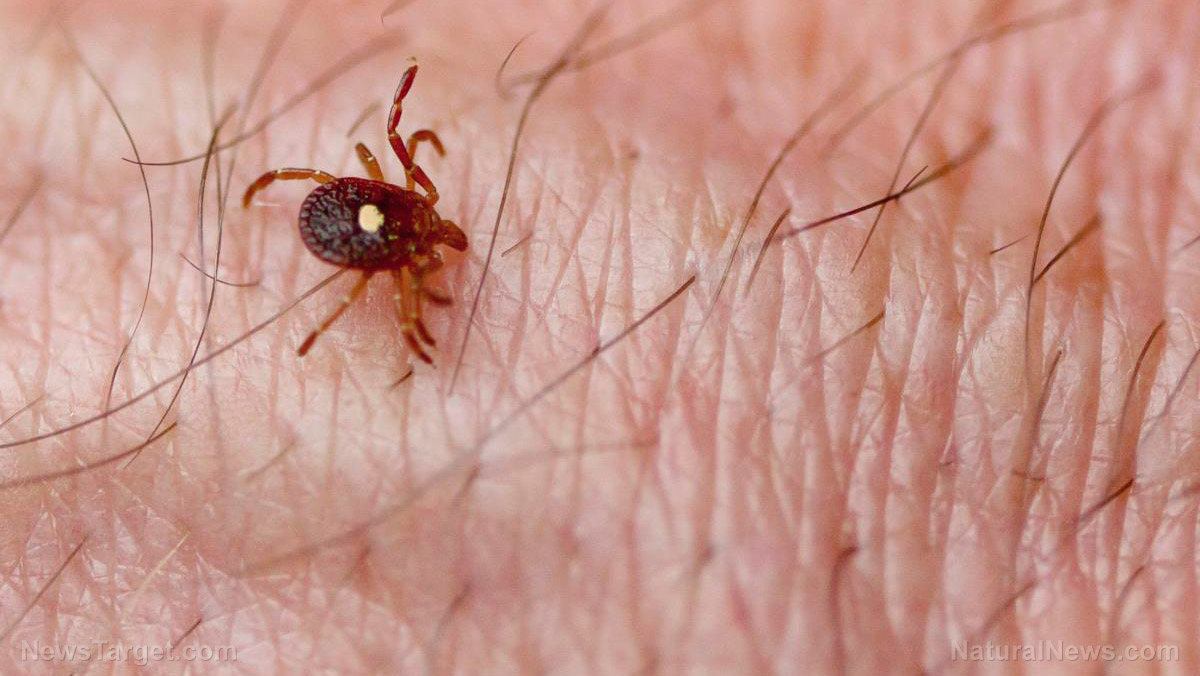New study says people with blood type A more likely to catch the coronavirus
03/20/2020 / By Evangelyn Rodriguez

People with blood type A have a significantly higher risk of getting infected by the coronavirus than people with other blood types. Meanwhile, those with type O blood, the most common blood type, have a much lower risk. These findings were reported by Chinese researchers on Monday in a study posted on the pre-print server for health sciences, medRxiv.
According to the researchers, who looked at the relationship between different blood types and susceptibility to the coronavirus in two heavily affected regions in China, the number of infected patients whose blood type is A far eclipsed the number of cases involving other blood types, despite type O being the most predominant blood type among a sample population from Wuhan.
Your blood type may dictate your risk for infection
To determine how blood type is associated with infection risk, the researchers looked at a total of 2,173 cases of COVID-19 — the disease caused by the novel coronavirus — from three hospitals in Wuhan, the epicenter of the outbreak, and Shenzhen, one of the first cities struck by the coronavirus outside of Hubei Province. Of the 13 million people residing in the city, more than one million are said to be from different parts of Hubei Province and more than 70,000 are from Wuhan.
The researchers reported that of the more than 2,000 cases they examined, 1,888 came from two hospitals from Wuhan, including 206 who were reported dead, and 285 came from a hospital in Shenzhen. They compared the distribution of blood types in these confirmed cases with the distribution of A, B, AB and O blood types in a sample population of normal people.

The researchers found that the distribution of these blood types in a sample of 3,694 normal people was 32.16 percent for type A, 24.90 percent for type B, 9.10 percent for type AB and 33.84 percent for type O. This showed the predominance of the O blood type. Compared with the distribution of these blood types in 1,775 COVID-19 patients in a hospital in Wuhan, the researchers found that the proportion of those with blood type A was significantly higher at 37.75 percent than those with type O blood, who only made up 25.80 percent of the cases. Meanwhile, patients with blood types B or AB also had low percentages, comprising only 26.42 percent and 10.03 percent of infected cases, respectively.
The researchers also observed a similar pattern of blood type distribution in 398 cases from two other hospitals, one in Wuhan and one in Shenzhen. In addition, the same pattern of high-risk blood type A and low-risk blood type O emerged when they considered only cases where patients had died. Among the 206 confirmed dead cases, 41.26 percent had blood type A while only 25.24 percent had blood type O. This distribution pattern led the researchers to believe that those with blood type A have a greater risk not only of being infected by the coronavirus but also of dying from the disease.
“Blood group O was associated with a lower risk of death compared with non-O groups, with an OR [odds ratio] of 0.660. On the contrary, blood group A was associated with a higher risk of death compared with non-A groups, with an OR of 1.482,” the researchers said in their report, noting that age and gender did not influence the blood type distribution in the majority of COVID-19 cases they observed.
“It might be helpful to introduce ABO blood typing in both patients and medical personal as a routine part of the management of SARS-CoV-2 [the official name of the coronavirus] and other coronavirus infections, to help define the management options and assess risk exposure levels of people.”
Does blood type really matter when it comes to health?
While not many people pay attention to their blood type, there are health risks that are determined by whether a person has type A, type B or type O blood, or a combination of A and B. According to PennMedicine, a person’s blood type may put him at risk for certain medical conditions.
For instance, those with A, B or AB blood types have a greater risk of heart attack and heart disease, courtesy of the ABO gene, which is absent in people with type O blood. Research shows that this gene influences hemostasis, which includes blood coagulation, as well as the levels of bad cholesterol in the blood, putting people with non-type O blood at an even greater risk of coronary heart disease. The ABO gene is also linked to a greater chance of developing cognition and memory problems associated with the onset of dementia.
But in the case of COVID-19, some experts say people with type A blood have nothing to fear. Despite the implications of the study, the results do not clearly show how people with this particular blood type can be more susceptible to the coronavirus than people with other blood types. According to Robin May, a professor at the University of Birmingham, the virus is known to infect other cells, not red blood cells, so it is difficult to see how susceptibility to the coronavirus can be influenced by a person’s blood type.
His sentiments were echoed by Gao Yingdai, a researcher with the State Key Laboratory of Experimental Haematology in Tianjin, China, who told the South China Morning Post: “[The study] may be helpful to medical professionals, but ordinary citizens should not take the statistics too seriously. If you are type A, there is no need to panic. It does not mean you will be infected 100 [percent].”
Like May, she highlighted one of the limitations of the study, which was that it did not provide a clear explanation about the phenomenon, such as the molecular interactions between the virus and different types of red blood cells.
“If you are type O, it does not mean you are absolutely safe, either. You still need to wash your hands and follow the guidelines issued by authorities,” Gao added.
To get the latest updates about the coronavirus outbreak, visit Pandemic.news.
Sources include:
Submit a correction >>
Tagged Under:
blood type, blood type A, blood type O, blood typing, coronavirus, covid-19, discoveries, infections, infectious disease, medical research, outbreak, pandemic, research, risk of infection, viral infection
This article may contain statements that reflect the opinion of the author





















